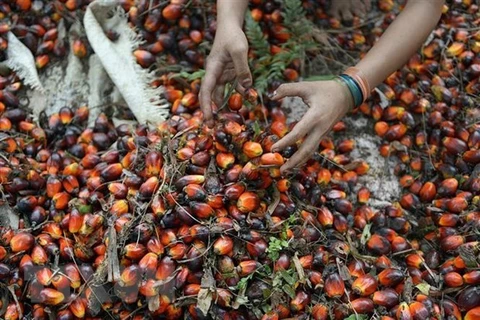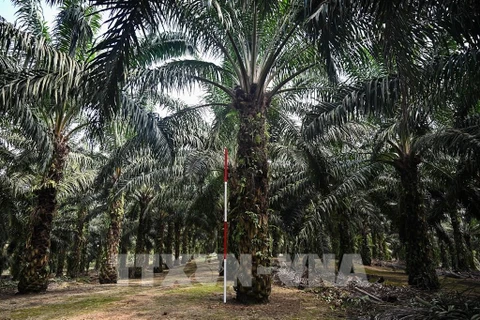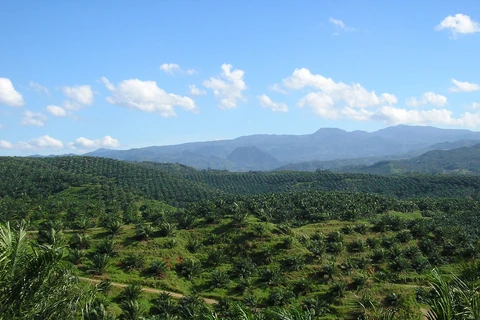Kuala Lumpur (VNA) - Although the Government of Malaysia has opened the border since April 1 and encouraged the recruitment of foreign workers, the continued labour shortage is seriously affecting the country’s palm oil industry.
Palm oil output in Malaysia, the world's second-largest producer, is forecast to decline, or at best remain unchanged, from last year's 18.1 million tonnes, according to planters and analysts.
The industry could also lose up to 20 billion RM (4.38 billion USD) if it doesn't find an adequate labour supply.
Plantations across the Southeast Asian nation are facing their worst labour crisis since the industry began in 1917, according to the Malaysian Palm Oil Association's (MPOA) Chief Executive Joseph Tek.
Malaysian palm oil planters are letting thousands of tonnes of fruits rot as the third year of a worker shortage has left companies unable to increase their harvesting during the peak production season.
Travel restrictions enacted in 2020 to fight the COVID-19 pandemic left the Malaysian palm oil industry short of 120,000 foreign workers needed to maintain trees and harvest fruit bunches./.
Palm oil output in Malaysia, the world's second-largest producer, is forecast to decline, or at best remain unchanged, from last year's 18.1 million tonnes, according to planters and analysts.
The industry could also lose up to 20 billion RM (4.38 billion USD) if it doesn't find an adequate labour supply.
Plantations across the Southeast Asian nation are facing their worst labour crisis since the industry began in 1917, according to the Malaysian Palm Oil Association's (MPOA) Chief Executive Joseph Tek.
Malaysian palm oil planters are letting thousands of tonnes of fruits rot as the third year of a worker shortage has left companies unable to increase their harvesting during the peak production season.
Travel restrictions enacted in 2020 to fight the COVID-19 pandemic left the Malaysian palm oil industry short of 120,000 foreign workers needed to maintain trees and harvest fruit bunches./.
VNA
























